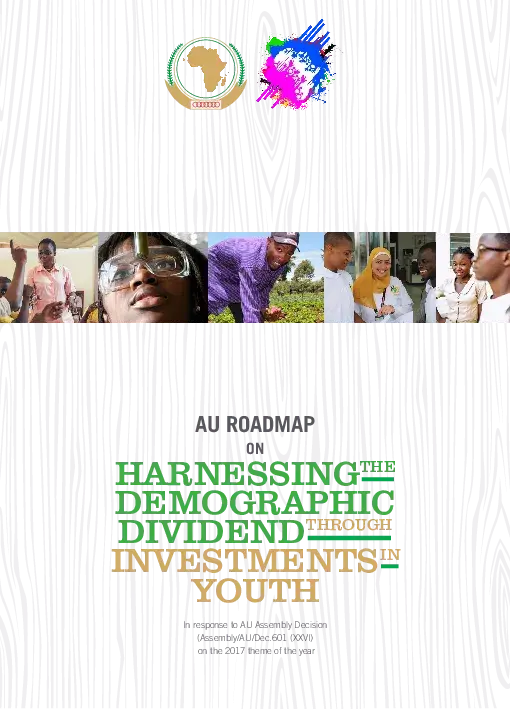Foreword Africa is on the march towards a more prosperous future in which all its citizens, young, old, male, female, rural, urban, of all creeds and backgrounds are empowered to realize their full potential, live with satisfaction and pride about their continent. A future with healthy, well educated people living in robust and developed economies. Indeed, this is a progressive march towards the ‘Africa we want’ as envisioned in Agenda 2063. Whilst many-sided and simultaneous steps are needed to achieve this bold vision, there are some very clear and obvious steps that must be taken without delay. This responsibility rests with all Africans, citizens and leaders alike, at the continental and regional levels and especially within countries to ensure we adequately invest in the development of our continent’s greatest asset: its young people. A peaceful and secure Africa requires an empowered generation of youth; a well-developed continent depends on the education and skills of Africans, especially the youth and none of our aspirations would be met if disease and poor health continue to affect millions of our citizens. With 60 percent of Africa’s population currently 24 and below, it is no surprise that at the dawn of our implementation of both Agenda 2063 and the 2030 Agenda for Sustainable Development, African Heads of State and Government have devoted the year 2017 to “Harnessing the Demographic Dividend through Investments in Youth”. The extent to which African governments are able to transform education and skills development, health and wellbeing, empowerment as well as employment and entrepreneurship would lie at the heart of this march towards progress, sustainable peace and development. In the email from the future, I highlighted the significant role that successive generations of youth can and should play in our continent’s development. Key investments in the youth of Africa today is critical to Agenda 2063 and to elevating Africa to be a strong and influential global player. The roadmap sets out the immediate actions for focused and expanded investments in Africa’s young men and women. It was developed at the request of African Union Heads of State and Government, and highlights key actions that must be taken so that the continent can harness the demographic dividend. It is my hope that Member States, regional economic communities, civil society organizations, young people, AU organs and all other stakeholders will work together to implement this roadmap in 2017 and beyond.
Dr. Nkosazana Dlamini-Zuma Chairperson, Africa Union Commission


